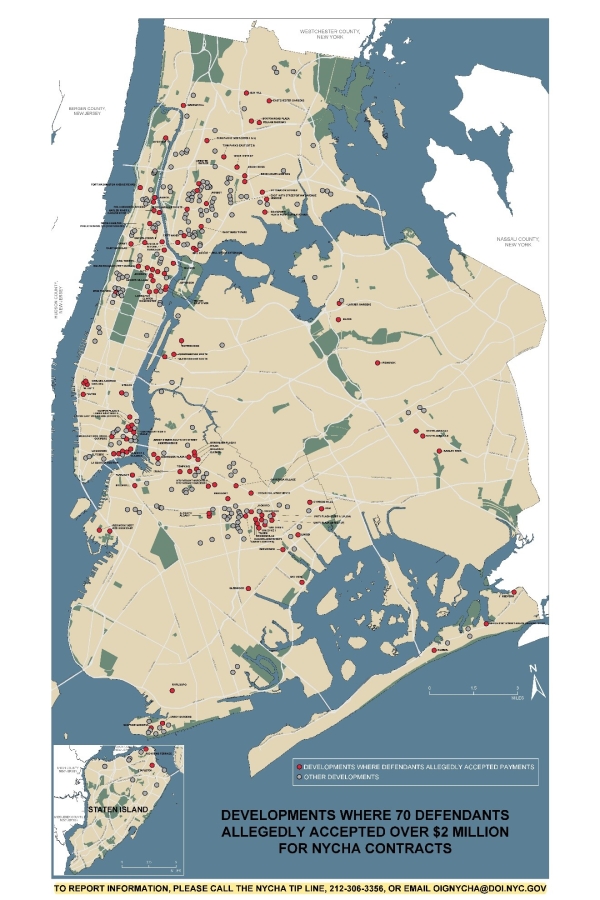New York City Mayor Eric Adams today provided testimony to the New York State Senate Finance and Assembly Ways and Means Committees, focusing on the administration’s Albany agenda to advance working-class families through extending mayoral accountability for four years, granting the city authority to shut down illegal smoke shops and creating more affordable housing. Finally, Mayor Adams outlined the city’s fiscal challenges, including state funding for asylum seekers and increasing New York City’s debt limit.
Below are Mayor Adams’ remarks as prepared for delivery:
Thank you, Chair Krueger, and in her absence my longtime Brooklyn colleague Chair Weinstein; Cities Chairs Sepúlveda and Braunstein; Local Government Chairs Martinez and Thiele; and members of the Assembly Ways and Means and Senate Finance committees.
I am Eric Adams, mayor of New York City. I’m proud to be here today with Jacques Jiha, director of our Office of Management and Budget. As I said in my recent State of the City, our city has always been about what is possible. It’s a place where you can start a business, start a family, and make your mark.
Two years ago, we came into office with a clear mission: to keep that American dream burning bright by protecting public safety, rebuilding our economy, and making our city more livable. Twenty-four months later, we are seeing real results. Crime is down, jobs are up, and every day we are delivering for working-class New Yorkers.
You have been our partners throughout this work, and to keep New York City on its upward trajectory, we must continue that strong partnership.
Protecting public safety means granting New York City the power to shut down illegal smoke shops, so New Yorkers can walk down the street without being bombarded by illegal shops that operate outside the law and put young New Yorkers at risk.
Rebuilding our economy means creating homes New Yorkers can afford, so working-class families can earn a living, raise their kids, and make it in the greatest city in the world.
It also means preparing our young people to succeed. Reading and math test scores are up, and we are outpacing the state, but if we don’t extend mayoral accountability, we risk going backwards.
Making this city more livable means investing in cleaner streets and more vibrant public spaces. To continue those investments, we need financial support to cover the costs of the asylum seeker humanitarian crisis.
These are urgent needs that support working-class families in New York City, and our administration is asking for your help.
But first, I want to thank you for your partnership in Getting Stuff Done for New Yorkers last year. Thanks to your leadership, we will preserve more affordable housing as a result of J-51 benefits; we were able to make substantial investments in our young people’s education; and we were able to defray some of the substantial costs associated with managing the asylum seeker humanitarian crisis.
New York City is proud to uphold our legacy as a city of immigrants. And we are proud that we have demonstrated leadership and compassion, when so many others showed only cruelty.
Over the past 22 months, we have provided more than 173,900 asylum seekers with food, medical care, and shelter. Of those, we’ve helped more than 107,500 — more than 60 percent — take the next step on the path to self-sufficiency. We have helped tens of thousands file Temporary Protected Status, asylum, and work authorization applications, bringing them one step closer to living a more stable life.
However, right now, there are more than 66,200 asylum seekers still in the city’s care. When you add in the 55,000 longtime New Yorkers in the city’s DHS system and well as others, that means we have close to three times the number of people in our shelter system than when we came into office. And it all comes at a great cost to our city.
In November, due to the growing asylum seeker humanitarian crisis, sunsetting federal stimulus that was used to support vital programs, and the cost of funding long-ignored labor contracts, we faced a historically large $7.1 billion budget gap.
We are legally required to balance Fiscal Years ’24 and ’25 in January. So we developed our financial plan without relying on federal assistance because, after many trips to Washington, D.C., I realized that the federal cavalry was not coming to the rescue. We did not procrastinate.
We knew that the faster we made the painful, but necessary, decisions, the faster we could stabilize the city’s finances. We frontloaded our implementation of the plan, which includes multiple rounds of savings through our Plan to Eliminate the Gap, or PEG, a hiring freeze, and a freeze on other-than-personal-services spending, among other things.
These decisions proved to be effective, resulting in a record level of $6.6 billion in PEG savings over Fiscal Years ’24 and ’25 — in the November and January Plans.
And we accomplished all this without layoffs, raising taxes, or major disruptions to city services.
Our savings include $1.7 billion that we achieved by taking steps to manage the cost of providing services for new arrivals by: reducing daily household costs, negotiating and renegotiating rates, and rebidding contracts and shelters run by for‑profit vendors, implementing intensive case management support to help asylum seekers reach their final destinations and leave our care, and transitioning away from a humanitarian relief center model of care to non‑profit service providers.
And in January, after a careful review of savings initiatives we implemented in November, we restored funding for critical initiatives protecting public safety, public spaces, and young people.
While these actions are important to New Yorkers, they represent less than three percent of the savings we achieved over the two years.
But I need to be crystal clear — although we have stabilized our financial situation through hard work and advanced planning, we are not out of the woods. While we appreciate the commitment the governor made last year to cover one-third of the city’s asylum seeker costs, this was based on the premise that the city, the state, and the federal government would split the costs three ways. The federal government has only committed $156 million — the vast majority of which we have yet to receive because of a complicated reimbursement process.
Despite our efforts, we cannot assume they will give us any more. While we are deeply grateful for the $1 billion that was appropriated in this year’s state’s budget, the midyear adjustment of nearly $900 million, and the $1.1 billion in shelter costs proposed in in the governor’s Executive Budget, we are still shouldering the largest share of asylum seeker costs.
In our budget, we assume that the state will meet its commitment to cover one-third of $10.6 billion in migrant costs over Fiscal Years ’23 through ’25. As of the governor’s Executive Budget, the state’s commitment to the city is just over $3 billion — or roughly 28 percent — which is $400 million short.
This, along with $200 million in budget hits like the Distressed Hospitals Fund sales tax intercept and school aid reduction, grows our Fiscal Year ’25 gap by $600 million.
New Yorkers are already carrying most of the asylum seeker costs. It is wrong to ask them to do more, and it puts our city in a precarious position. Today, we are asking the state to increase its commitment and cover at least 50 percent of our costs.
Next, when it comes to our schools, we strongly support the governor’s four-year extension of mayoral accountability. Mayoral accountability allows us to make much-needed systemic changes quickly, efficiently, and equitably. Under the current system, the buck stops with me, and you’ve seen that.
Thanks to mayoral accountability, we have improved reading and math test scores over the last two years, outpacing the state, while closing racial disparities.
We also launched New York City Reads, a nation-leading curriculum that teaches our kids the fundamentals of reading. This is more than a curriculum change — it is a reading revolution.
New York City Reads is already being implemented in over 90 percent of our early childhood system and across nearly half of our K-5 classes. And just last month, Governor Hochul announced that she is following our model and bringing the science of reading to every school district statewide.
Without mayoral accountability, our plan would have encountered months, if not years, of delay, which our families cannot afford.
Mayoral accountability allowed us to launch a first-in-the-nation systemwide dyslexia screening program to make sure no child falls through the cracks, launch gifted and talented programs in every neighborhood, and hire full-time mental health professionals for every school.
Prior to mayoral accountability, high school graduation rates stagnated at 50 percent — they are now over 80 percent. Again, all of this is possible because of mayoral accountability.
For the first time ever, New York City is being led by two people who are the products of our city’s public schools. Chancellor David Banks and I know that our public schools can change lives and produce the leaders of tomorrow. And mayoral accountability will allow us to continue to put that firsthand knowledge into practice.
We are also keeping families engaged and at the table to make sure their voices are heard. From regular town halls to parent meetings, Chancellor Banks and I are making sure that we hear directly from the families we are serving. Please let us continue to grow test scores and help our students so they don’t fall backwards without mayoral accountability.
In addition to having a good education, every child has to have a safe, clean place to rest their head at night.
I know what it feels like to worry about losing your home. As a young man in South Jamaica, Queens, my siblings and I carried trash bags filled with clothes to school, because our mom was worried that we would be forced onto the streets without warning and wouldn’t have a change of clothing. No New Yorker should have to experience that.
That is why we have proposed a bold affordable housing agenda. We have already taken steps to combat the housing and affordability crisis. We have financed a record number of new affordable units, housing for the formerly homeless, and supportive homes this past calendar year; connected a record number of New Yorkers to affordable housing; and proposed the most pro-housing reforms in the history of our city’s zoning code with our “City of Yes for Housing Opportunity” plan. But we still need Albany’s help.
This session, we are calling for: a new affordable housing tax incentive, a pathway to legalize safe, existing basement and cellar apartments, incentives for office conversions, and lifting the cap on density for new construction.
We are also limited in how much more the city can borrow to fund our significant infrastructure needs. If we run out of room to borrow, that limits our ability to build new schools, maintain our roads, and electrify our buildings amid the climate crisis. The governor’s support for increasing the Transitional Finance Authority’s borrowing power to $36 billion is a step in the right direction to build a safer, cleaner New York City.
Finally, we agree with Governor Hochul and so many of our elected partners on the importance of keeping New Yorkers safe. But people need to feel safe, too. New Yorkers should not have to worry about crime and their quality of life. And they shouldn’t have to worry about illegal smoke shops selling cannabis to their children.
Legal cannabis remains the right choice for our city and our state, but New Yorkers are fed up with these illegal storefronts and their unlawful business practices. We need you to grant us the authority to inspect and permanently shut down these shops. Give us the proper authority, and we will get the job done.
To conclude, the governor’s Executive Budget is a good first step in this year’s legislative process. We share many priorities and look forward to working with her administration and the Legislature to achieve these goals and improve lives of New Yorkers now, and for generations to come.
Thank you.



















